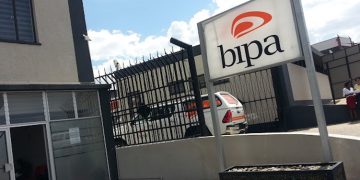
Minister of Mines and Energy Tom Alweendo says there is renewed viability about the Kudu Gas Project, with the government pushing for it to be developed in collaboration with South Africa.
“With the recent discovery by Total Energy and Shell Namibia in the orange basin there is a lot of associated gas that in itself has started to change the economics narrative of Kudu Gas and there we realised it is much more viable and we are pushing that this can happen.
Yes, we are in discussion with our neighbour, South Africa, because if they participate it will be more viable. Combining energy resources makes it a much easier project to do,” Alweendo said recently.
The pronouncements by the mines Minister come as NAMCOR and the government have identified the Kudu Gas Project as one of their ultimate responses to the looming energy crisis.
“Kudu Gas was established way back in the 1970s and I think it was not developed due to the economics of it. If you have resources, you only exploit and monetise it based on the cost of extraction. Now the economics of Kudu has changed and not only because of our realisation [that] the energy poverty is real and we all need this, why not use the resources we have,” he explained.
The Minister highlighted that Namibia and several other countries in Africa face a significant energy deficit, which limits economic growth and negatively affects the living standards of the citizens.
As a result, Alweendo said there is a need to critically think about how to navigate the severe energy shortage in the country and on the continent.
He says this can be done by understanding the complexities of energy through the economic, environmental, and political crises faced today, revealing what is really going on and how best to respond.
“This is a critical time for our planet that demands critical thinking. We are a fossil-fuelled economy and currently cannot substitute it with one fuelled by renewables. We lack the minerals and materials needed. Even if we did have the materials and minerals, we do not have the time and the money,” he said.
He asserted energy transition cannot be managed in a simplistic manner, as there is a need to decide between growth and degrowth when it comes to economies.
“If we are going to grow our economies – as we have decided to – it means we are going to demand more energy. Furthermore, the availability and access to energy sources are not evenly distributed, leading to geopolitical tensions among nations.
It is essential therefore to handle the energy issue with caution and care to prevent conflicts and ensure sustainable development. The current geopolitical tensions are a clear indication of the importance of giving due diligence to the energy issue,” he said.
According to NAMCOR, the Kudu Project Development has its purpose in the development of the Kudu Gas Field located offshore.
The Kudu gas discovery is in the northern Orange sub-basin approximately 130km off the south-west coast of Namibia. It is situated in Petroleum Production Licence 003 (“PPL003”), which has an area of 4,567 square kilometres and the field water depth is approximately 170 metres.
“The gas produced from the Kudu Gas field will be transported in a 170-km pipeline to a power station that will be built and situated at Uubvlei, approximately 25km north of Oranjemund, in southern Namibia.
The gas will be used to generate electricity from the Kudu 800MW CCGT Power Station to be constructed and run by NamPower (Pty) Ltd and its partners.”
BW Energy entered into a farm-in agreement for a 56% operating interest in early 2017, with NAMCOR holding a 44% joint venture interest.
BW Energy signed a farm-up agreement with NAMCOR, increasing the Company’s interest to 95% in the licence and closed the transaction in 2021.
The company has a revised integrated development plan that aims to supply competitive power to a growing African market with significant upside potential.













